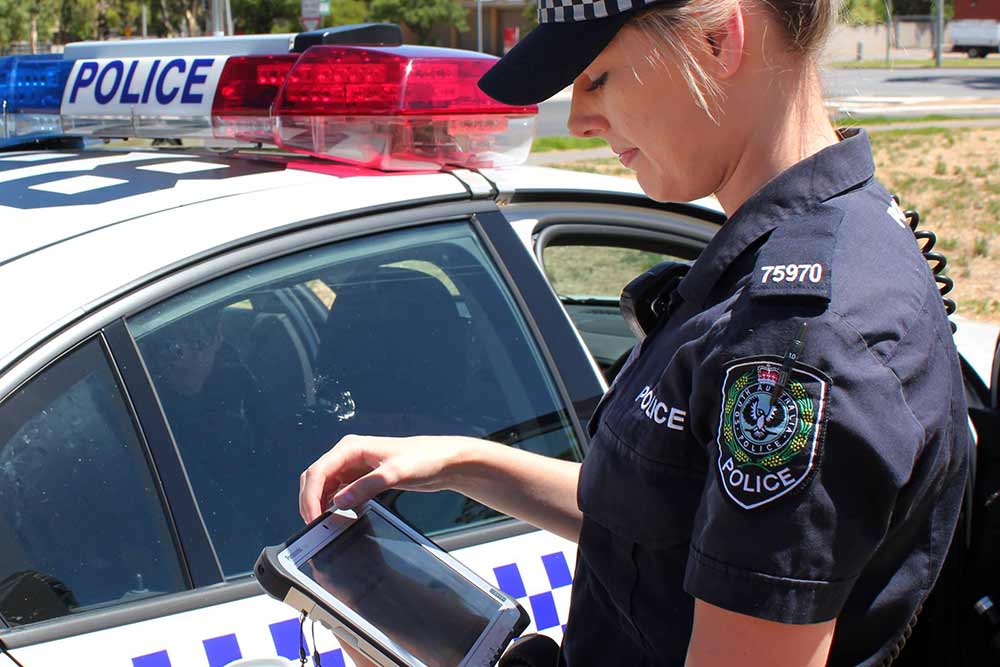
Image: SA Police
Police in South Australia have a new communications tool added to their law enforcement arsenal, and it’s bound to let them get out of their car seats more often.
Replacing the mobile data terminals on police car dashboards, the SA government has deployed a fleet of 855 Panasonic Toughbooks [model FZ-G1 MKIII (Mark III)] as part of an investment of $7.4 million in tablet technology over five years.
As opposed to the aging in-vehicle Mobile Computing Application (MCA) system., the new tablets are entirely portable and provide police with the capability to capture, retrieve and submit information from within the field.
But it’s not just to make work easier for police, the government expects that the technology will increase productivity by an estimated 165 hours per day / $3.3 million per annum, which equates to the deployment of around 29 extra officers.
The rugged tablets have been rolled out after a rigorous testing, procurement and 12-month trial process where they were fitted to every police vehicle in the Elizabeth area to create a proof of concept.
And now officers are currently being trained on the technology which will be installed in up to 680 vehicles with 175 extra tablets available for frontline officers.
It’s not the only way SA Police are becoming high tech.
The government is currently rolling out facial recognition technology, as well as a body worn camera program, which is already being used in Queensland, New South Wales and Victoria.
This is in addition to the use of Portable Data Terminals (smart phones) and finger print scanning technology.
SA Minister for Police Peter Malinauskas said the state government is committed to building one of the largest, most efficient and technologically advanced police forces in the state’s history.
“We want police out from behind desks and onto the frontline. This technology increases the mobility of our police force; information will be more accessible, officers will be more efficient, and capabilities will be enhanced,” Mr Malinauskas said.
Superintendent Scott Allison said SA Police has been able to almost eliminate the need for frontline officers to return to their stations to complete paperwork, providing them with technology where they have, in effect, a mobile office.
“This gives us the benefits of both ‘in-vehicle’ computing and the portability to capture, retrieve and submit information in the field,” Mr Allison said.
He expressed relief at the “enormous benefit” to enter data into police systems without having to return to a desktop computer at a police station.
“There’s no doubt the technology will allow officers to access information more rapidly and overall increase the frontline capabilities of officers,” he said.





